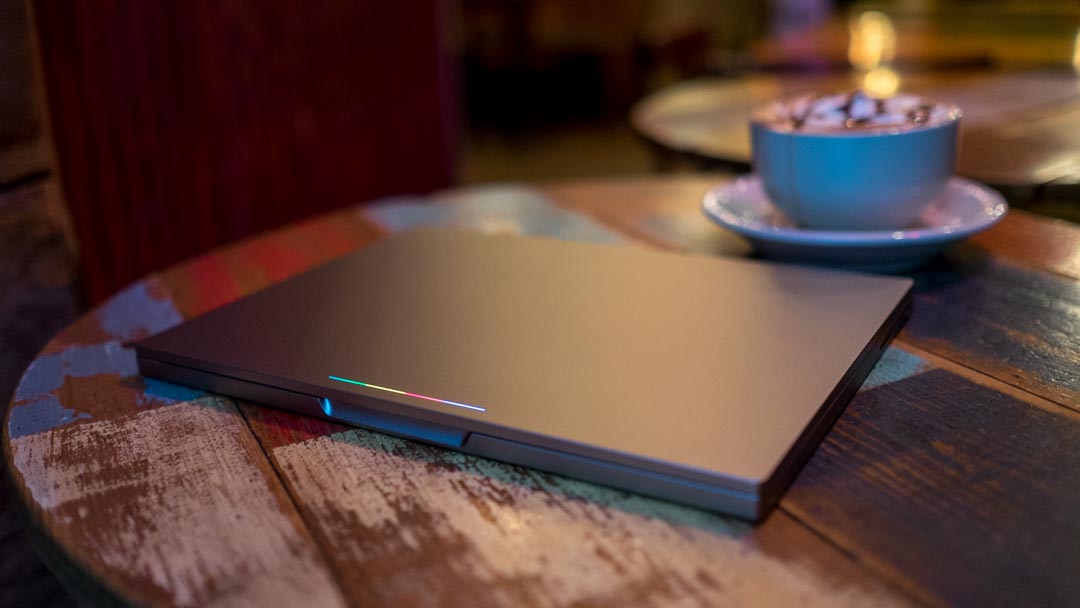Why you can trust TechRadar
Google has improved the Pixel in almost every regard and most importantly addressed the battery life issues found in its inaugural laptop. The new Pixel has also been tweaked with a more colorful and responsive touchscreen, as well as the addition of USB-C. Despite all these improvements, it still doesn't fix this machine's underlying problem: it costs more than twice as much as most other Chromebooks.
We liked
If you're looking for the end all, be all of Chromebooks, the Pixel is it. Outfitted with a Core i5 processor, USB 3.1 (and USB-C) ports, a high-resolution screen, and more RAM than it will ever need, this laptop sets a high bar for Chrome OS machines for years to come. The only notebook that will come close matching the Pixel's performance in the foreseeable future is the Acer Chromebook C910, a 15-inch rig that will feature the same Core i5 processor.
Power and performance aside, the Pixel is one of the few Chromebooks that feels like it has itself completely figured out. The build quality of this machine is exquisite and the design has been engineered down to a science. What's more, its vivid screen - plus the impeccable keyboard and trackpad - all help to round out the Pixel as one excellent, premium package.
We disliked
It's impossible not to get hung up on the Pixel's high price. For the same amount of money, you could buy two or even three Chromebooks or a decent Windows laptop. Which begs the question: is the Pixel worth it's weight in gilded aluminum?
The answer is: almost. In many ways, this is the best Chromebook money can buy, with a nearly record-setting battery life and performance that can't be beat - for now. However, Chrome OS itself still has too many limitations to be the only computing device for some folks, namely tasks like easily-accessible printing, native media creation and gaming. . This makes it difficult to recommend that you invest so much money in such a machine.
Final verdict
The Pixel set a precedent for Chromebooks years ago as the most premium laptop made solely for web browsing. This latest model builds on that legacy, iterating and improving upon it. However, while the Pixel is about as close to perfection as a Chromebook can get, this isn't necessarily a machine for the everyday user.
Although the Pixel is available as a commercial device, it's more of a development platform that represents the future of Chromebooks. The inclusion of USB-C and, to a lesser extent, the touchscreen help the Pixel serve as a testbed for these two technologies that have yet to be widely or meaningfully implemented in Google's platform. At the same time, the Pixel represents epitome of what a Chromebook can be today, making it a great choice for developers building applications for the next version of Chrome OS.
Simply put, most users won't need this much performance to just run the Chrome browser and a few Android applications. Both the Toshiba Chromebook 2 and Acer Chromebook 13 are excellent Chrome OS machines at a much more affordable price. The latest Chromebook Pixel is a gorgeous preview of what's possible for the platform, but it's not what you need right now.
Kevin Lee was a former computing reporter at TechRadar. Kevin is now the SEO Updates Editor at IGN based in New York. He handles all of the best of tech buying guides while also dipping his hand in the entertainment and games evergreen content. Kevin has over eight years of experience in the tech and games publications with previous bylines at Polygon, PC World, and more. Outside of work, Kevin is major movie buff of cult and bad films. He also regularly plays flight & space sim and racing games. IRL he's a fan of archery, axe throwing, and board games.

